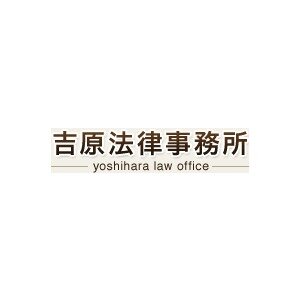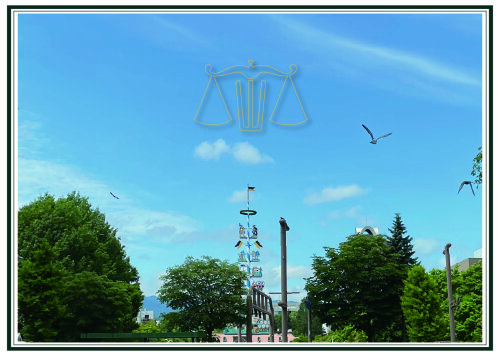Best Divorce & Separation Lawyers in Sapporo
Share your needs with us, get contacted by law firms.
Free. Takes 2 min.
Free Guide to Hiring a Family Lawyer
List of the best lawyers in Sapporo, Japan
About Divorce & Separation Law in Sapporo, Japan
Divorce and separation in Sapporo, Japan, follow the country's family law system. Japan recognizes four methods of divorce: divorce by agreement (kyogi rikon), divorce by mediation in a family court (chotei rikon), divorce by decision of the family court (shimpan rikon), and divorce by judgment of the district court (saiban rikon). Divorce by agreement is the most common and simplest method but is only applicable when both parties agree on all terms. Complex cases where the parties cannot agree, those involving child custody, or disputes over assets often require one of the other three methods, which can be more time-consuming and legally demanding.
Why You May Need a Lawyer
Seeking the advice of a lawyer in cases of divorce and separation is essential for various reasons: understanding complex legal procedures, protecting your rights, ensuring fair division of assets, settling child custody matters, and navigating disputes that may arise during the process. Legal representation is particularly important in contested divorces, international marriages, when the division of substantial assets is involved, or whenever there is a significant disagreement between spouses.
Local Laws Overview
Local laws in Sapporo coincide with national Japanese laws on divorce and separation. Some key aspects include the requirement for parental consent in cases involving children under 20 years of age, the division of marital assets based on the principle of equitability rather than equality, and the potential requirement of spouse or child support post-divorce. Additionally, cases involving international elements may be governed by international agreements and complex jurisdictional issues.
Frequently Asked Questions
1. How do I file for divorce in Sapporo?
To file for divorce by agreement, you submit the required form at the local government office. For other types, proceedings start at the family court or district court, depending on the case.
2. Do we need to have a reason for divorce?
For a contested divorce, you must establish a legally accepted reason for the divorce, such as infidelity, abandonment, or irreconcilable differences. For an uncontested divorce by agreement, no reason is required.
3. How is child custody decided?
Child custody is determined based on the best interest of the child, with a strong emphasis on stability. In many cases, sole custody is awarded to one parent, but visitation arrangements can be part of the agreement.
4. Will I have to pay alimony?
Alimony may be required, depending primarily on the income disparity between spouses and the circumstances leading to the divorce.
5. How is property divided in a divorce?
Property is divided based on the principle of equitable distribution. Contributions made by both spouses during the marriage are considered, but the division is not necessarily equal.
6. How long does the divorce process take?
The duration can vary widely. A divorce by agreement may be completed quickly if all terms are settled, whereas contested divorces can take months or years to resolve.
7. Can I represent myself in a divorce proceeding?
While self-representation is legally permissible, it is advisable to hire a lawyer to navigate the complexities of family law, especially in the case of a contested divorce.
8. How do international marriages affect divorce proceedings?
International marriages may involve additional complexities such as determining the appropriate jurisdiction, addressing differences in national laws, and handling international custody issues.
9. What if my spouse doesn't agree to the divorce?
If your spouse does not agree to the divorce, you will need to pursue divorce through mediation, decision, or judgment of the court, which will require proving legally acceptable grounds for divorce.
10. Are same-sex divorces recognized in Sapporo?
As of the knowledge cutoff in 2023, Japan does not recognize same-sex marriage, and therefore same-sex divorce proceedings are not formally recognized either.
Additional Resources
For those seeking divorce or separation advice in Sapporo, it is recommended to consult with the Sapporo Family Court or local legal aid services that can offer guidance or referrals to experienced family law attorneys. Additionally, the Japanese Law Translation website, maintained by the Ministry of Justice, provides access to English translations of Japanese laws.
Next Steps
If you need legal assistance with divorce or separation in Sapporo, your first step should be to consult with a qualified local family law attorney who can evaluate your case and advise you on the best course of action. They can help you understand your rights and responsibilities and represent you throughout the legal process if necessary. Consider contacting the local bar association for referrals to reputable lawyers specializing in family law.
Lawzana helps you find the best lawyers and law firms in Sapporo through a curated and pre-screened list of qualified legal professionals. Our platform offers rankings and detailed profiles of attorneys and law firms, allowing you to compare based on practice areas, including Divorce & Separation, experience, and client feedback.
Each profile includes a description of the firm's areas of practice, client reviews, team members and partners, year of establishment, spoken languages, office locations, contact information, social media presence, and any published articles or resources. Most firms on our platform speak English and are experienced in both local and international legal matters.
Get a quote from top-rated law firms in Sapporo, Japan — quickly, securely, and without unnecessary hassle.
Disclaimer:
The information provided on this page is for general informational purposes only and does not constitute legal advice. While we strive to ensure the accuracy and relevance of the content, legal information may change over time, and interpretations of the law can vary. You should always consult with a qualified legal professional for advice specific to your situation.
We disclaim all liability for actions taken or not taken based on the content of this page. If you believe any information is incorrect or outdated, please contact us, and we will review and update it where appropriate.











